FinMin to approve budget honorariums
ECC approves new policy for grant of honorariums to govt employees
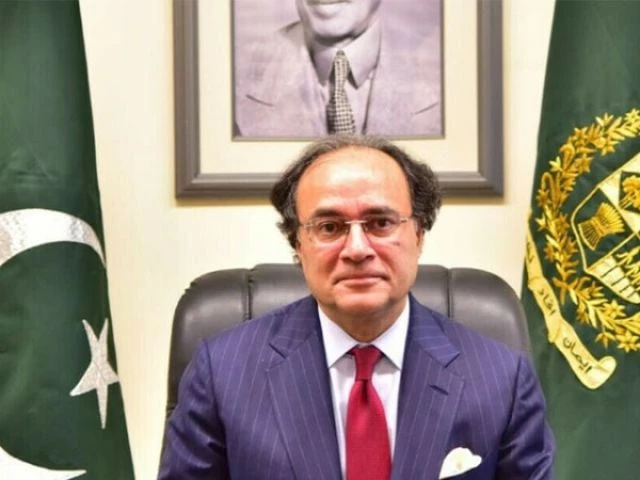
A cabinet body on Monday approved a new honorarium policy for the civil servants, giving discretionary powers to the finance minister to approve as many as budget honorariums for the employees of economic ministries, parliament and Prime Minister's Office, according to an official statement.
Headed by Finance Minister Muhammad Aurangzeb, the Economic Coordination Committee (ECC) of the cabinet "approved a summary by the Finance Division, outlining the policy for the grant of honorariums to the government employees", it said.
The ECC authorised the finance minister to "grant budget honorarium to the employees posted in Finance Division, Revenue Division, Federal Board of Revenue (FBR), Planning, Development and Special Initiatives Division, National Assembly Secretariat, Senate Secretariat and the Prime Minister's Office," according to the newly approved policy.
"The quantum of budget honorarium for each financial year shall be decided by the Finance Minister," reads the new policy that gives discretionary powers to the finance minister to dole out as many budget honorariums as he or she deems fit without any upper cap.
The tax rate for these budget honorariums will also be far lower than the standard income tax rates. According to the policy that is subject to the federal cabinet approval, "taxation of honorarium will be on the lines of taxation of monetisation allowance". The bureaucrats receiving monetisation allowance pay only 5% in income tax on the amount that they receive as monetisation allowance.
"The tax on payments under the Compulsory Monetisation of Transport Facility for Civil Servants in BS-20 to BS-22 (as reduced by deduction of driver's salary) shall be charged at the rate of 5% as a separate block of income", reads the income tax law.
Responding to the queries from The Express Tribune, Finance Minister Muhammad Aurangzeb said that "the grant of budget honorarium has always been with finance minister as chair of the ECC".
He added that the finance minister was in best position to evaluate efforts in budget making exercise as his work entailed close working with all the economic ministries associated with budget formulation and implementation.
"Secondly the supposed discretionary power is exercised on the recommendations of Honorarium committees and PAOs and is further subjected to a delegated evaluation within each ministry's constituent units," added the minister.
Reposnding to another question about the tax rate on these honorariums, the finance minister stated that the "budget honorarium is one time reward regime and therefore taxed at a different rate than salary".
Overall, the new policy streamlines the rewards that the bureaucrats get over and above their standard salaries. Currently, the federal secretaries have been authorised to give one honorarium up to grade 18 officers in a fiscal year.
Above the Grade 18, the approval of the ECC chairman was required. According to the new policy, the federal secretary will be empowered to give one honorarium to all the employees, except to him or herself.
A new reward category is also announced for all the federal government employees. Currently, there is no reward regime in place for high performing individuals in the federal government, which is demotivating for high performing employees, according to the Finance Ministry.
Now, it has been decided that the federal secretary may grant one performance honorarium equal to one basic pay, on outstanding performance, to not more than 25% employees of a ministry or division in BPS 1-22, except for him or herself. The federal secretary's honorarium will be decided by the federal minister, according to the decision.
Except for one annual reward, one performance reward and as many as budget rewards as the finance minister wishes so, no other honorariums will be granted, including those associated with religious festivals such as Eid and Christmas, according to the new policy. Employees who have received budget honorarium will not be eligible for grant of ordinary and performance honorarium.
The new policy states that no honorarium will be paid in cash and all honorarium payments have to be reflected in payroll statements. The performance honorarium will not be granted by a ministry, if the employee has not served in such ministry for less than six month.
No honorarium, except for outstanding performance honorarium, will be granted before May 1, in any financial year. Employees who have received budget honorarium will not be eligible for grant of ordinary and performance honorarium.
If ordinary and performance honorarium has already been granted to an employee, who is being granted budget honorarium, the amount of budget honorarium will be adjusted against the already drawn performance honorarium. No employee will receive honorarium from more than one organisation.
Meanwhile, the ECC approved Rs61.2 billion in supplementary grants for various ministries, mainly for payment of short-term debt. It approved Rs1.7 billion for the ministry of defence "for technological upgradation of the ISPR", according to the Finance Ministry.
The meeting approved Rs1.3 billion in grant for the Finance Ministry to return the amount to the government of Sindh as unutilized funds from wheat seed cash reimbursement programme. It approved Rs40.3 billion for the Economic Affairs Division on account of revised budget estimates for FY2024-25 for repayment of short-term foreign loan credits.
The ECC also approved a summary by the Power Division for approval of a tripartite power purchase agreement of 1,145 MW Karachi Nuclear Plant Unit-2 (K-2) and Unit-3 (K-3) at Karachi.
The ECC considered a summary by the Commerce Ministry and approved an amendment in import policy order (IPO) for the state-owned defence production entities and their wholly-owned commercial subsidiaries. The ECC also approved a summary by the Housing Ministry for withdrawal of directives for transfer of Hyderabad Package and Karachi Package from the Government of Sindh to PIDCL.

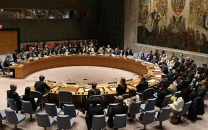
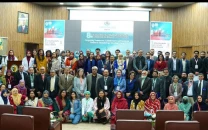
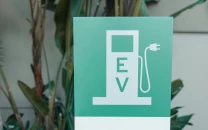



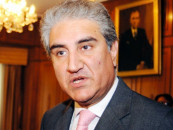












COMMENTS (1)
Comments are moderated and generally will be posted if they are on-topic and not abusive.
For more information, please see our Comments FAQ